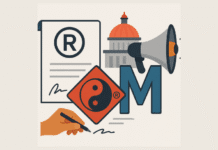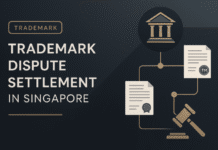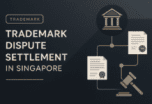Environmental Protection License: Everything You Need to Know
If you’re starting a business in Singapore that uses or has the potential to impact environmental resources negatively, you’ll sooner or later meet the phrase Environmental Protection License. It is a set of legal requirements that ensures your business runs smoothly while protecting people and the environment from the costs of production.
In this article, we discuss the meaning of an environmental licence in Singapore and the various types of ecological protection licenses. By the end of this article, you should understand the type of license your business may need and how to apply for it.
What is an Environmental Protection License?
Contrary to common belief, an Environmental Protection License (EPL) is not a single document covering all activities. Instead, it’s a collective term used for multiple permits and authorisations governed by the Environmental Protection and Management Act (EPMA) and related legislation in Singapore. You only need to get the license you need.
An environmental protection licence allows businesses to legally undertake activities such as discharging industrial wastewater, importing or storing hazardous chemicals, operating equipment with regulated refrigerants, or transporting toxic waste. In return, companies must strictly comply with regulatory standards and may face legal consequences if they breach the law.
What Are the Different Environmental Protection Licenses in Singapore
This table outlines the various environmental protection licenses in Singapore, categorised by their purpose and the entities requiring them. Also, remember that while this table has the most licenses that businesses typically need, it isn’t the complete list. Thus, it’s always safe to work with a legal team, or a corporate service provider if your case is complicated.
| License/Permit | Purpose | Who Needs It |
|---|---|---|
| Public Health Pesticide & Repellents Registration | Ensures products control disease vectors safely. | Companies/individuals selling or supplying pesticides/repellents |
| Aquatic Facility Licence | Maintains safe water quality in pools and spas. | Operators of swimming pools and spas |
| Cleaning Business Licence | Authorises cleaning services legally. | Businesses offering cleaning services |
| Environmental Control Coordinator (ECC) Certificate | Certifies individuals to oversee sanitation programs. | Individuals nominated as ECC |
| Environmental Control Officer (ECO) Certificate (Specific Premises) | Ensures environmental standards at designated sites. | Appointed ECOs for specific premises |
| Environmental Control Officer (ECO) Certificate (Specified Construction Sites) | Monitors compliance at construction sites. | Appointed ECOs for construction projects |
| Fumigation Permit | Allows .3+safe use of fumigants. | Companies/individuals conducting fumigation |
| Funeral Parlour Licence | Regulates funeral home operations. | Funeral home operators |
| General Waste Collector Licence | Licenses companies to collect general waste. | Waste collection companies |
| General Waste Disposal Facility Licence | Regulates waste disposal facilities. | Operators of waste treatment facilities |
| Hazardous Substances (HS) Licence | Controls import, export, storage, and use of hazardous substances. | Companies handling hazardous substances |
| Hazardous Substances (HS) Permit | Governs storage and use of hazardous substances. | Companies storing or using hazardous substances |
| Hazardous Substances (HS) Transport Approval | Regulates hazardous substance transportation. | Logistics/transport companies handling hazardous substances |
| IR1 Licence | Authorises handling of irradiating apparatus/radioactive materials. | Companies using or selling radioactive materials |
| IR2 Licence | Permits the use/possession of radioactive materials for non-sale purposes. | Research or industrial entities |
| IR3 Licence | Regulates the handling and transport of radioactive materials. | Companies handling or transporting radioactive materials |
| IR4A/B Licence | Controls import/export of irradiating apparatus. | Companies importing/exporting such apparatus |
| IR5A/B/C Licence | Regulates import/export/transit of radioactive materials. | Companies moving radioactive materials internationally |
| N1 Licence | Authorizes manufacture/sale of non-ionizing radiation apparatus. | Companies manufacturing/selling non-ionizing devices |
| N2 Licence | Permits use/possession of non-ionizing radiation apparatus. | Research or industrial users |
| N3 Licence | Regulates use of lasers for safety. | Companies using lasers |
| N4A/B Licence | Controls import/export of non-ionizing apparatus. | Companies importing/exporting non-ionizing devices |
| R1 Registration | Registers radiation workers for safety compliance. | Individuals working with radiation |
| Toxic Industrial Waste (TIW) Collector’s Licence | Licenses companies to collect toxic waste. | Companies handling toxic industrial waste |
| Toxic Industrial Waste (TIW) Transport Approval | Regulates the transport of toxic waste. | Transporters of toxic industrial waste |
| Vector Control Operator (VCO) Certificate | Certifies individuals for vector control services. | Vector control companies/employees |
| Vector Control Technician (VCT) Licence | Licenses technicians for technical vector control work. | Vector control companies/technicians |
| Vector Control Worker (VCW) Certificate | Certifies workers assisting in vector control. | Vector control companies/workers |
| Written Permission to Discharge Trade Effluent into a Watercourse | Regulates discharge to prevent water pollution. | Companies discharging trade effluent |
Some Common Environmental Licences that You Need as a Business in Singapore
Here’s more about the environmental business licences that you may encounter in Singapore, along with when you need them:
Written Permission to Discharge Trade Effluent
Covers industrial wastewater and liquid discharges beyond domestic sewage. Businesses must obtain permission before discharging into drains, waterways, or the public sewer.
This is a foundational licence for many Singapore businesses.
Applications may involve PUB (for sewers) and NEA (for watercourses).
Hazardous Substances (HS) Licence and Permit
Required for importing, storing, using, manufacturing or supplying hazardous substances (e.g., heavy metals, solvents, persistent chemicals).
Businesses must maintain safety plans, detailed inventory records, and appoint qualified compliance officers. Annual fees apply.
HS Transport Approval & Toxic Industrial Waste Approvals
Needed for transporting hazardous or toxic waste on public roads. Approval depends on packaging, containment, and route compliance.
NEA may prescribe specific routes, time windows, and trained personnel to minimise risk of leaks or spills.
Regulated Goods Registration (Refrigerants & RAC Equipment)
Applies to refrigeration and air-conditioning equipment subject to global warming potential (GWP) and efficiency requirements.
Part of Singapore’s climate policy: phasing out high-GWP refrigerants and mandating certified technicians for recovery and record-keeping.
Radiation Licences (Ionising & Non-Ionising)
Covers use, import, or handling of radioactive sources, irradiating apparatus, lasers, and UV equipment.
Typically required by specialist labs, sterilisation services, and manufacturing. Safety measures and monitoring are tightly regulated.
How to Apply for an Environmental Protection License in Singapore
Given that there are several environmental permits in Singapore, applying for each of them entails a different process. However, generally, you need to follow these steps to apply for an environmental protection license in Singapore:
Identify the Right Licence
Check which licence applies to your activities. You can refer to the list above, but it’s always recommended to check the GoBusiness Licensing Portal, NEA, or PUB websites.
Prepare Supporting Documents
Typical requirements include your company’s UEN, safety data sheets, process flow diagrams, treatment plans, or details of the appointed officer in charge.
Submit Your Application Online
Most applications are made electronically through GoBusiness. Some may require additional submissions to NEA, PUB, or SCDF, depending on the activity.
Pay the Licence Fees
Fees vary by licence type. Some are annual (e.g., hazardous substances), while others, like trade effluent approvals, may involve monitoring or treatment costs.
Wait for Agency Review
Agencies review applications. Simple licences may be processed in a week, while technical licences like trade effluent approvals may take several weeks.
Typical costs & who pays what
Each licence has its own costs; for example, the Hazardous Substances (HS) Licence fee typically costs S$525 for a year. The fees vary primarily by the nature of the activity.
Companies applying for an environmental protection license should also factor in the costs for testing, sampling, engineering designs, treatment plants, monitoring equipment and consultants.
Realistically, depending on the nature of the license and activity, small-scale operations might spend a few thousand dollars on pre-treatment and monitoring. Similarly, medium factories often require six-figure investments for proper treatment systems.
Frequently Asked Questions (FAQs) on Environmental Protection Licence
Final Checklist Before You Apply for the Licence
- Identify emissions (water, air, noise, chemicals).
- List quantities and SDS for all chemicals.
- Prepare process flow diagrams and treatment specifications.
- Engage a qualified person to sign off where required.
- Use the GoBusiness, NEA, and PUB portals for applications.
- Budget for capital treatment, monitoring, and consultant fees.
- Track licence expiry and renew on time.
This checklist reflects the guidance of experienced environmental professionals to ensure smooth licence acquisition and ongoing compliance.
Conclusion
Environmental protection licences might be one of the more complex aspects of starting a company in Singapore, but they’ve been one of the best tools to help Singapore fulfil the goals of the Green Plan 2030. Additionally, Singapore’s business environment and environmental protection framework are praised globally for being effective and efficient. Still, it would be wise to engage with a company incorporation service provider if you’re applying for one for the first time.
You can contact Singapore Brand if you need help with any information presented in this article.










